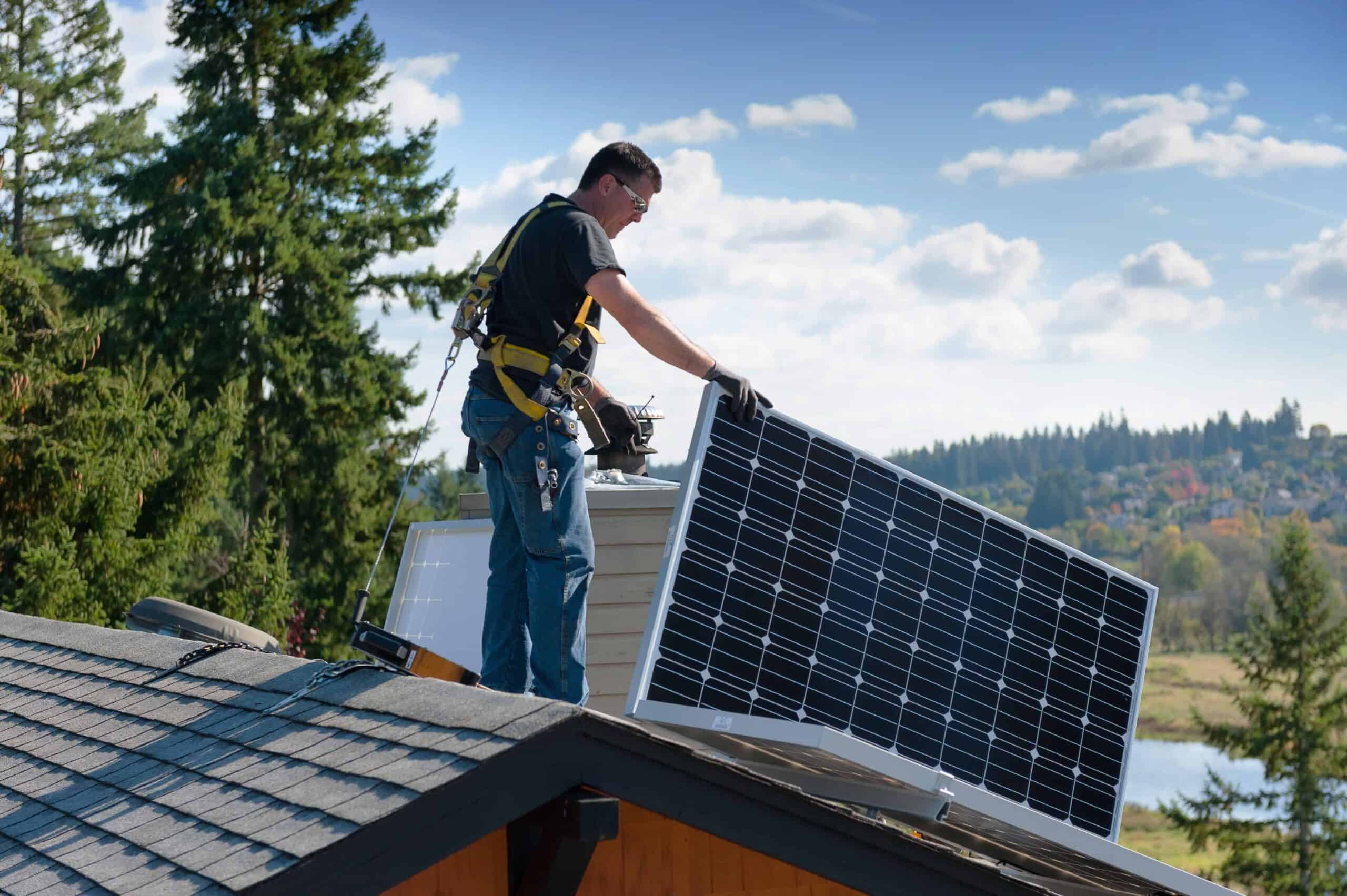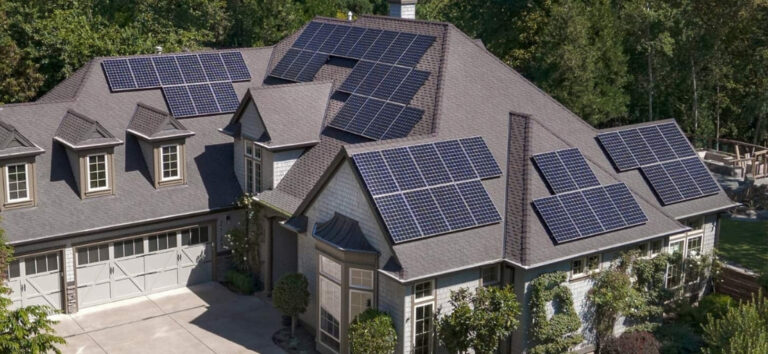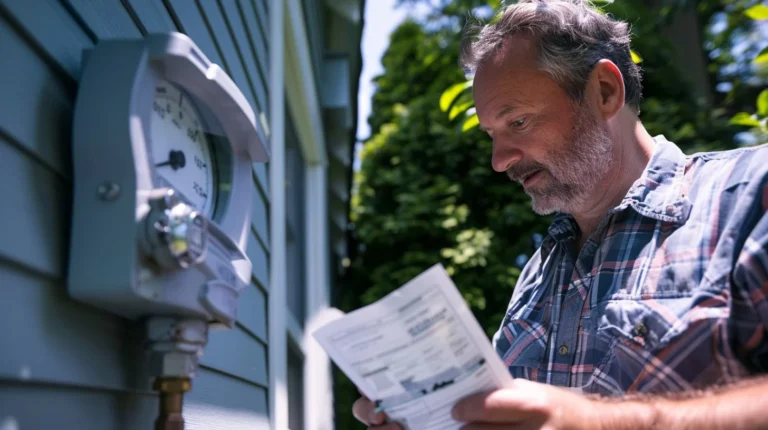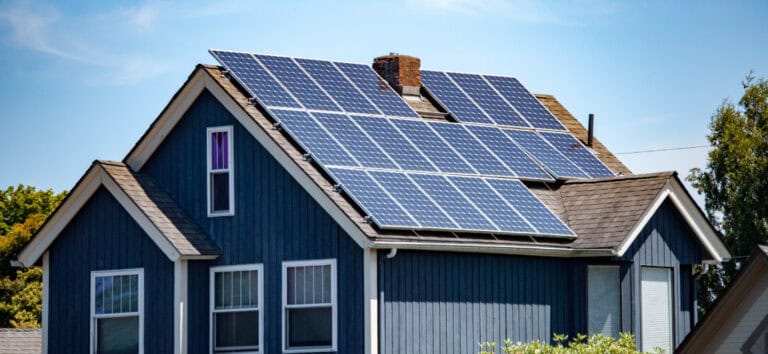When homeowners in the Pacific Northwest think solar, they usually think “too cloudy” and wonder whether installing solar is worth it. However, there are numerous solar energy options for homeowners—and our cloudy weather has nothing to do with it. Modern electric systems are reliable, efficient, and economical and let you enjoy clean, reliable energy, all without having to purchase additional electricity from your local utility.
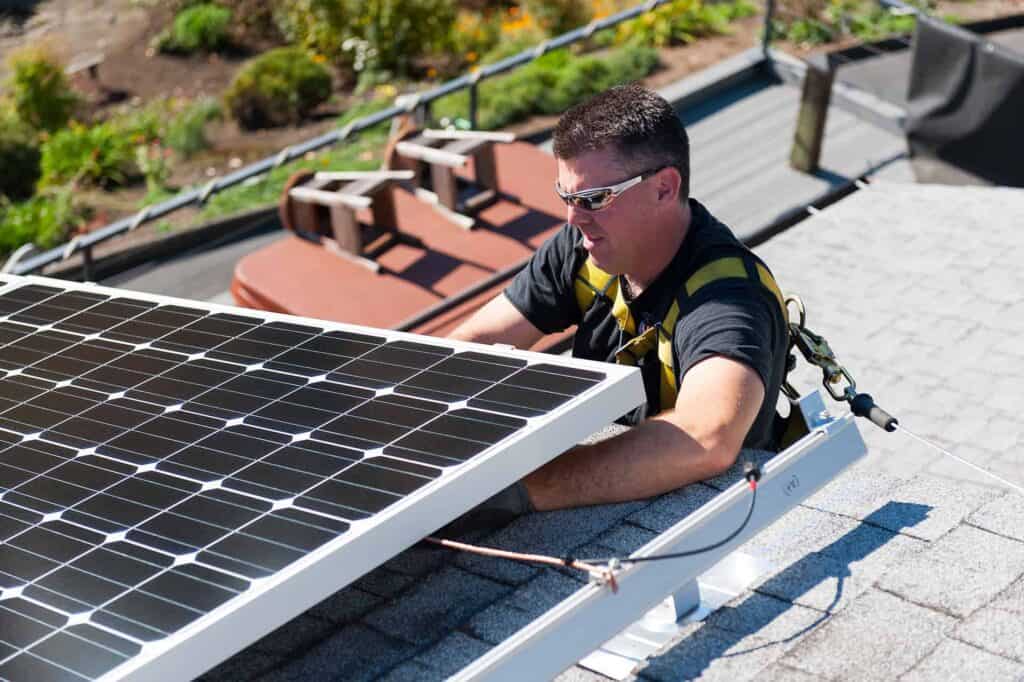
What Does Net Zero Mean?
A recently completed solar project in Happy Valley, Oregon presented us with a three-story, 45-degree roof and a homeowner who wanted to get to net zero, but also didn’t want the same messy solar set-up as the neighbors. By successfully installing solar, cleanly and neatly, we helped the homeowner achieve net zero, or the ability to produce as much energy as is being used.
Net zero works like this:
In the summer, homeowners produce more energy than needed. By going to net zero they can bank that energy with their local utility and then use those credits in the winter when they need it. We’ve helped homeowners achieve this. In fact, the solar energy system we installed for the Happy Valley homeowner has produced a surplus of energy since its installation. The homeowner hasn’t had to purchase electricity since then.
Goals of Net Zero
Beyond eliminating or greatly reducing energy costs for homeowners and businesses, the concept of net zero also seeks to completely negate the amount of greenhouse gases produced by human activity. This is achieved by reducing emissions and introducing methods of absorbing carbon dioxide from the atmosphere.
Net zero is also used interchangeably with the term carbon neutral because both result in CO2 being removed from the environment. Despite this similarity, carbon-neutral initiatives typically refer to businesses’ goals to limit increases in future carbon emissions, while investing in carbon offsets like reforestation and landfill management to neutralize their existing emissions. In contrast, the primary goal of net zero is to reduce carbon emissions as much as possible, while offsetting unavoidable remaining CO2 as a last resort.
Steps to Net Zero
Before we install solar on your home, we take steps to ensure your project is successful. First, we look at the structural integrity of your home. For instance, if it’s an older home, structural upgrades might be necessary.
Next, we ensure your electrical system can handle the extra production of solar arrays. Then we help you define your goals and work with your budget. From there, we gather all the pieces and draft a bid. Once approved, we complete all paperwork for utilities and permits, then begin the planning and designing. We then install the solar panels and equipment (which usually takes 2-4 days), then the inspection and completion.
Solar Tax Savings in Oregon and Washington
Adding solar to your home is a big decision. However, with today’s generous financial incentives and the reduced PV panel costs, there has never been a better time to plug into the power of solar.
Homeowners and low-income service providers in Oregon can access the Oregon Solar + Storage Rebate Program, which issues rebates of up to $5,000 for solar electric systems and up to $2,500 for paired solar and storage systems. Rebates are paid to ODOE-approved contractors, who pass the savings on to their customers. Neil Kelly’s solar consultants can help you access additional federal tax credits, as well as incentives through Energy Trust of Oregon.
Washington residents may already know that their state’s incentive program, the Renewable Energy System Incentive Program through Washington State University, filled up in 2021 and is no longer taking applicants; however, another incentive is available to Evergreen State residents. Washington provides a sales tax exemption for purchasing solar machinery and equipment and installing solar energy systems, available through 2029.
Our solar company in Oregon and Washington can also help you access federal tax credits like the investment tax credit (ITC), a rebate that allows homeowners or businesses to claim a dollar-for-dollar reduction to their federal income taxes. The reduction amount for solar systems is capped at 30% and will experience incremental reductions before expiring in 2035.
Installing Solar in the Pacific Northwest
Installing solar panels on your home, whether you want to achieve net zero or not, is a great investment, adds to your home’s value, and gets you locked into current, and often, wildly changing energy prices to generate clean solar energy for decades.
Ready to go solar? Neil Kelly’s solar energy professionals can help you take advantage of credits and rebates to help offset the cost of installation.

